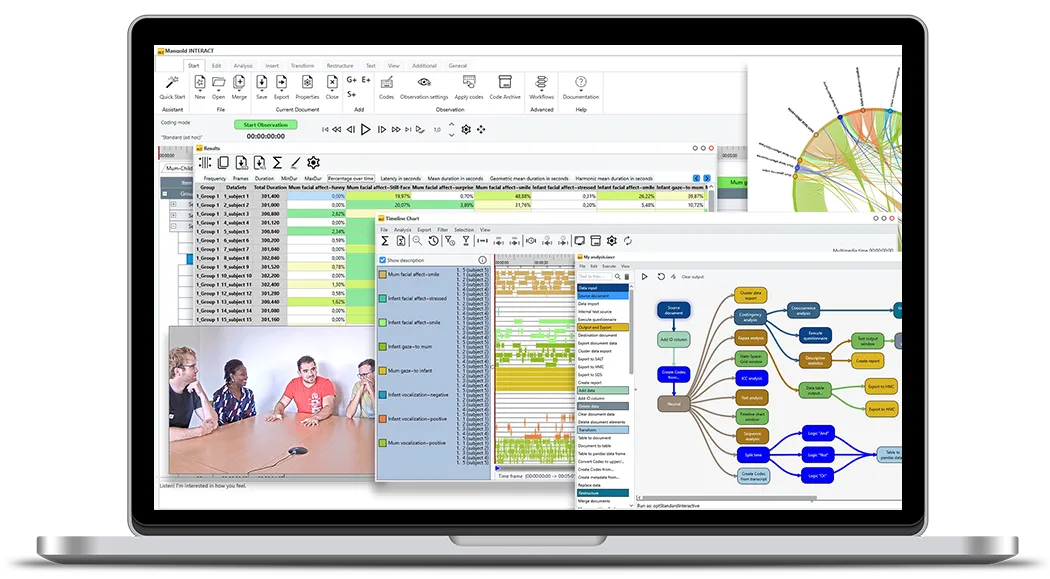Research · 2 min read
Study on Prenatal Risk Factors
Research examining how stress during pregnancy affects child development, with focus on emotion regulation using observational methods

Stress in the womb?
If mothers are exposed to high levels of stress during pregnancy, it can affect the later development of their children. What are the consequences for the child?
Researchers at the University of Basel, Switzerland, study this question. They assume that prenatal risk factors affect the brain development and therefore are important factors for future behavioral problems of children. A recent study, which uses Mangold INTERACT for video analysis, examines the relationship of the mother’s stress levels and emotion regulation of the child.
To learn how to deal with emotions is an important development in the first three years of a child’s life. They learn to interpret environmental actions, to understand their feelings, to balance possible responses and to avoid inappropriate reactions. It is estimated that people with good mechanisms of emotion regulation rarely suffer from mental illness, whereas difficulties in emotion regulation increase the risk of later mental illness.
In the study, the cortisol concentration of the pregnant mothers was measured several times in order to draw conclusions about the stress levels during the pregnancy. Newborns reactivity to stimulation was evaluated between postnatal day 10 and 14 by using neuropsychological tests. Infant’s self-quieting-activities, as an indicator of emotion regulation, were evaluated at the age of six months.
The findings indicate that newborn’s reactivity to stimulation is moderating the association between prenatal stress and emotion regulation. Data suggests that temperamental characteristics of the newborn are a relevant differential susceptibility factor with regard to prenatal effects on emotion regulation.
Bolten, M., Nast, I., Skrundz, M., Stadler, C., Hellhammer, D., Meinlschmidt, G. (2013): Prenatal programming of emotion regulation: Neonatal reactivity as a differential susceptibility factor moderating the outcome of prenatal cortisol levels. In: Journal of Psychosomatic Research, Vol 75 (4), S. 351-357.
INTERACT: One Software for Your Entire Observational Research Workflow
From audio/video-based content-coding and transcription to analysis - INTERACT has you covered.
